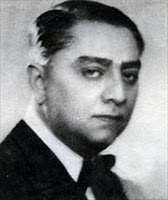 |
REVIEW
Nikka Gershman and Vivian Fan play 19th century potpourris and other works at Mason House
RODNEY PUNT
Nikka Gershman, a 15-year-old flutist of exceptional ability, has wowed audiences and won performance awards since her elementary school days in Los Angeles. No dimpled, winking prodigy, Gershman has endowed her brief guest appearances to date with the confident poise of a seasoned professional. Yet, until this evening, she has never essayed a full program in an actual professional setting.
That concert debut—as performer and, in one encore, also composer—came Saturday evening at the Mason Home Concerts in West L.A. It satisfied, even surpassed, expectations that had preceded this young artist’s previous outings. Her dazzling, at times mesmerizing, exploration of the range of flute capabilities skipped through, confidently and consummately, the many minefields of an exhaustingly full program of seven complex works and two encores.
Performing with Gershman this evening, pianist Vivian Fan served dual roles of single piano and occasional surrogate orchestra for those works originally written for multiple instrumentation. The ideal acoustics of the Mason Home made clear to the evening's audience of 50 rapt listeners the fast-moving, yet nuanced, passagework on both flute and Fan’s equally inspired piano collaboration.
A full evening of flute works presents a challenge at least two-fold: to confirm the instrument’s customary pastoral origins (readily appreciated in works like Beethoven’s Pastoral Symphony and Debussy’s Prelude to the Afternoon of a Faun), while also enlarging the flute’s stereotypical purity with sounds and colors more fitting the multi-colored dramas inherent in longer, more complex works.
Taken as a whole, the program was designed to both dazzle spirits with a first half devoted to musical pyrotechnics, and to warm hearts with a second half providing more lyrical statements. The LA Phil’s Dr. Kristi Brown (above) shared some intricacies of the flute and outlined the works to be performed. Gershman herself introduced each of her pieces with poised confidence, by no means a given for a person of her age.
 |
| Paul Taffanel. |
Airs Valaques, a 19th century crowd-pleaser very popular in its day, is a concoction of plaintive folksongs from the Austrian Empire’s Latin-speaking Balkan provinces. Gershman’s flute technique exploited seductive syncopations to evoke the sort of exotic odalisques one might see in a campy 1930s movie or, in a more refined way, in the paintings of Matisse or Degas. A catchy accelerando at the end sounded to some (and me) like simultaneous scaler octaves, technically impossible to perform on the flute. Were they produced by double-tonguing, or triple-tonguing? Wow!
Between these two digit-devouring exercises, each piece chiming in at just under a quarter of an hour, Vivian Fan’s solo piano rendition of J. S. Bach’s plaintive Sheep May Safely Graze provided a short respite for Nikka Gershman to catch her breath.
 |
| Vanity Fair caricature of Pablo de Sarasate. |
Connecting with this earlier mood, Pablo de Sarasate’s Zigeunerweisen initially showcased Gershman’s soulful legato, before its prestissimo finale proved she was still good for more fireworks. Christoph Gluck’s Dance of the Blessed Spirits from his opera Orfeo ed Euridice gave further evidence of Gershman’s sweet-side technique.
The feel of serenity continued with evening host Todd Mason’s Morning at Silver Lake, here receiving its world premiere, and the only piece for which Gershman needed a score. A work of neo-Impressionism, its gentle measures evoked, for this listener, a lovely gaze into a quiet morning on a fresh lake, giving way later to Nature’s awakening vibrance, mirrored in its ever gently flowing waters.
Any reveries the audience might have been lulled into were quickly dissipated by the evening’s final work on the formal program, François Borne’s Fantasy on Themes from Bizet’s Carmen, similar to the kitschy but cute vein of the two opening potpourris.
Two encores were still to follow. The first was Nikka Gershman’s own work, Tempest for flute and piano, cheekily showcasing her creative skills along with the phenomenal recreative ones she demonstrated all evening in performance.
 |
| Grigoraș Dinicu. |
Attending the concert were Gershman’s parents and all four of her grandparents, as well as her third-grade teacher who early on had noticed her remarkable potential and recommended she transfer her studies to the Merman School for the Gifted. Nikka soon did, and upon graduation enrolled in the Colburn School, Los Angeles’s storied preparatory school for musicians.
Gershman was given a further lift this evening with recent news of her acceptance this fall into Manhattan’s Juilliard School, one of the youngest incoming students in the conservatory’s history, also its youngest recipient of the Kovner Fellowship. She’ll pursue a Bachelor of Music degree at the studio of Carol Wincenc, needing special housing until she reaches minimum age for the dorms.
Why, one might ask, would 15-year-old Nikka Gershman not first finish her high school requirements? Easy answer: she already has on an accelerated schedule, a breezy two years before her peers have finished stressing over grades and pimples.
As chance would have it, the evening’s host, Todd Mason (left, with Nikka and Vivian Fan), was a graduate of Juilliard some decades ago, initially also majoring in flute before he switched to composition. Tempus really fugits for many of us now. But some of our replacement parts, like Nikka Gershman, give happy prospect for even greater achievement.
---ooo---
Mason Home Concert, 3484 Redwood Ave., Mar Vista, CA 90066, 6:00 p. m., Saturday, April 15, 2023.
Images: The performance: Todd Mason; Composer portraits: Wikimedia Commons.
















